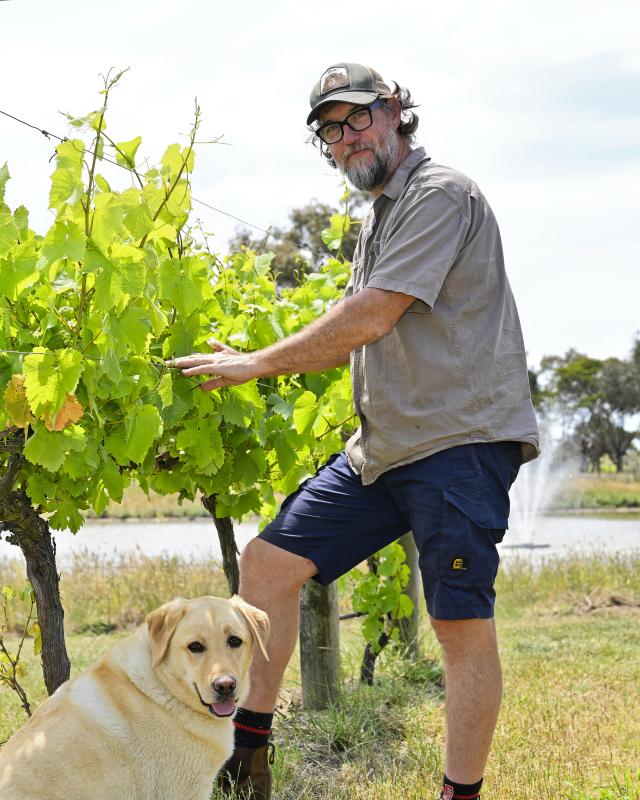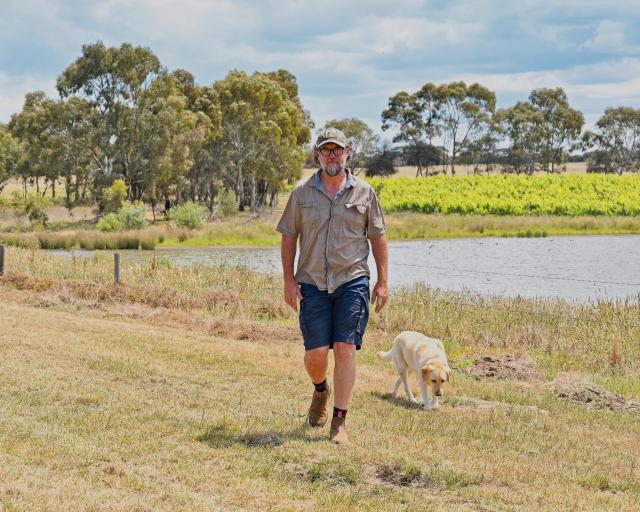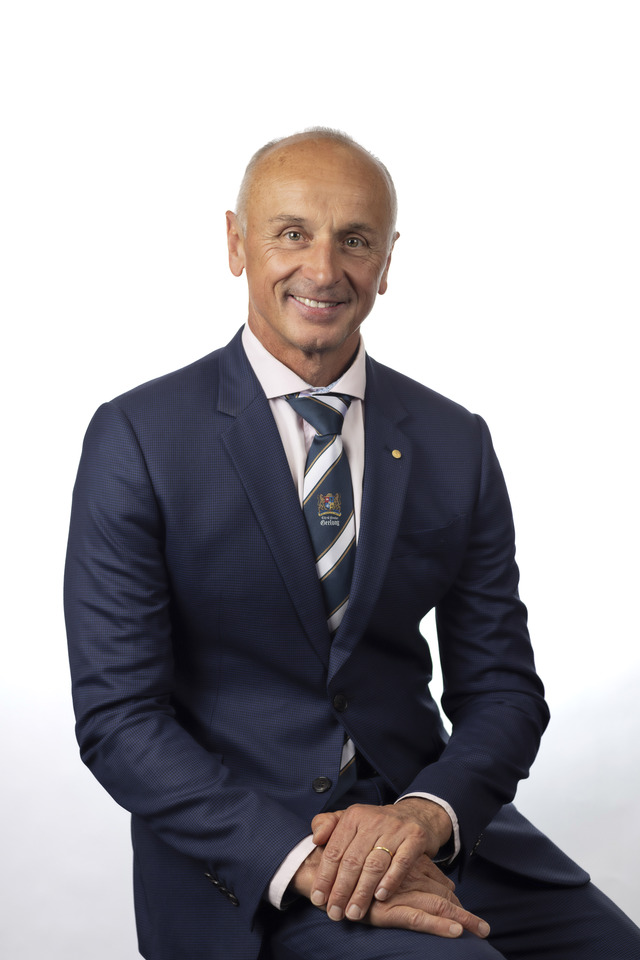One Australian is diagnosed with a NeuroEndocrine Tumour (NET) every 90 minutes, with 50 per cent of patients misdiagnosed, according to NeuroEndocrine Cancer Australia (NECA). For NET Cancer Day, November 10, Jena Carr spoke to Barwon Heads winemaker John White, 54, about his cancer diagnosis and journey from a corporate job to a vineyard.
Three years ago, in May 2020, during Victoria’s COVID lockdowns, John White was running errands when he started to have sharp stomach pains.
The pain went away, so John thought he had just had some bad food, that is until the cramps came back four months later in September while out shopping with his wife.
This time, instead of going away, the pain gradually got worse over the next 12 to 18 hours, which led the Barwon Heads man to go to the hospital.
“My wife and I were at the green grocers, and I had a sharp pain in my abdomen, and I thought it was another food thing, but it kept on getting worse,” he said.
“I couldn’t sleep that night, and my wife said, ‘You should be going to the doctor or emergency because you’re not right’, but I said, ‘No, I’ll be fine in the morning’.
“When the morning came, I was in so much pain that we went to the emergency department at the Geelong Epworth Hospital, and they did a scan but thought it was appendicitis at first.
“There was a specialist walking the floor on the day and he said, ‘that mass where your appendix is, is not your appendix, it’s something else’.”
After blood tests and scans, John was found to have a NeuroEndocrine Tumour (NET) located between the small and large intestines.
The week after diagnosis, John was in surgery to remove 60 centimetres of his bowel, 10 lymph nodes and a 50-millimetre-diameter mass.
“It was in lockdown, so my wife dropped me off at the hospital not knowing how bad it was and the gravity hits you and, at that stage, all of our kids were at home,” he said.
“We got the news and did a jigsaw puzzle on the table, just the five of us. Without saying a word, there were a few tears, and I went to the hospital the next day.
“I was about a month off work. I had a zipper scar over the stomach, and they must take out your intestines to find out where it is and then basically cut that out and reseal it.
“You can’t eat for seven days, which was a real bummer because the Epworth has a really good food menu. I was recovering at home and that was around the time that I started thinking, ‘am I living the best life and the life that I wanted to live’, but I got caught up with work again.”
John was still working at his investment management corporate job in October 2022 when doctors detected a second NET on his bowel, close to 50 centimetres away from the original one.
“My oncologist has classified me as a curious case because I’ve had it twice close together and it’s not the same cancer that’s spread, it’s a completely new cancer,” he said.
“That’s scary because they realise that they probably don’t know as much about this cancer as they thought they did originally, so they’re still learning how it transmits through the body.
“The most likely explanation is it was a continuation of the first one, but the surgeon was adamant that she got out everything, so it could be a new primary tumour which is pretty rare.”
After his second NET diagnosis, John decided to quit his job and follow his dream of being a winemaker. At age 54, he now owns a vineyard in Portarlington and his Circulus Wines business.
“After my diagnosis, my wife prompted me to ask the question, ‘What have you not done in your life that you wish you had?’ and my answer was that I never got around to making wine,” he said.
“She said, ‘Why don’t you do that? Why don’t we talk to a couple of people and maybe do a barrel?’. Six months later, we buy a vineyard.
“I was second guessing whether I was doing the right thing leaving my job, but at that time, I was thinking, ‘I don’t know how long I’ve got to live’.
“Winemaking is a change of pace from what I was doing beforehand, and it keeps you grounded. The process, chemistry and winemaking are fascinating and frustrating at the same time.
“I consider myself really lucky to be in this situation as I’ve been able to have a change of life due to this close call and it’s allowed me to take stock of what’s really important in life.”
Neuroendocrine Cancer Australia (NECA) chief executive Meredith Cummins said NET cancer was often misdiagnosed.
“The symptoms, like diarrhoea, racing heart and flushing are often attributed to everyday illnesses by doctors and means the cancer is often diagnosed late and can no longer be cured,” she said.
“Many NET cancers are treatable when caught early, so the poor outcomes that we often see can be prevented.”
John said he felt lucky to have been diagnosed early and have close access to infrastructure like hospitals. He was declared clear of cancer this year in April at a six-monthly review.
“It’s a scary place to be, but if you’re actually in the system, you got people looking at your file all the time,” he said.
“In the back of my mind, I’m still scared because it’s come back a second time round, it could come back again, but if it does present itself again, I’ve got the best team around me to take care of me.”
NET Cancer Day is on Friday, November 10, and more information about the disease and its diagnosis is available at neuroendocrine.org.au
Help and 24/7 support is available by calling Lifeline on 13 11 14.










